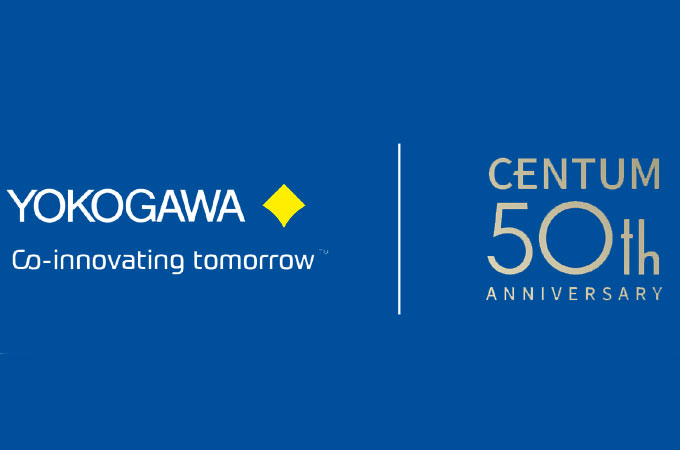Yokogawa Electric Corporation has unveiled the next-generation Release 7 concept and the launch of Release 7.01 of the CENTUMTM VP integrated production control system, a core product in the OpreXTM Control and Safety System lineup.
This is the 10th generation of the CENTUM series, and its release coincides with the 50th anniversary of the announcement of CENTUM as the world’s first distributed control system (DCS), on June 19, 1975.
Development Background
In addition to the dynamic changes in supply chains over recent years, countries have been strengthening regulations in response to a growing awareness of the need to protect the environment. At the same time, with the increasing use of digital technologies for complex applications such as the management of the utilisation of renewable energy and the analysis of data in cloud-based environments, security risks have become a greater concern. Also, while utilising existing tangible assets, there is a growing need to pass on to others the expertise of seasoned operators, and to reduce the workload and mental burden for personnel who are responsible for systems that must be kept operating around the clock. Amidst the growing complexity of these industry challenges, management and frontline personnel are required to increase competitiveness and strike a balance between the stable manufacturing of superior products and the need to improve efficiency and profitability.
The Concept behind CENTUM VP Release 7
In response to these issues, Yokogawa has based its development of CENTUM VP Release 7 on the concept of enabling autonomous operations. With CENTUM, Yokogawa is helping its customers attain sustainability by improving energy efficiency, accelerating decarbonization, and providing a safe and secure working environment. While maintaining the reliability, stability, continuity, robust security, and comprehensive engineering and service network that have been hallmarks of the CENTUM series since its inception, Yokogawa will drive innovations for the future in the following three areas:
1. Expanded scope of control and monitoring
By securely aggregating a wide range of data scattered throughout the plant, the status of the entire plant can be monitored, and the scope of automated operation can be expanded, enabling safer and more secure operations.
2. Predictive monitoring through process condition monitoring
By extracting and identifying process-specific events related to operations and predicting deviations from expected values, operators can anticipate changes and take action, helping to achieve more stable operations and improve energy efficiency.
3. Reduction of operator workload
By presenting future scenarios that leverage operator knowledge and know-how, it supports the operator in making accurate decisions. In addition, autonomous control AI*3 can take over from operators to achieve long-term stable operation. This reduces operator workload and mental stress.
Main Features of Release 7.01
To achieve autonomous operations, it is essential to leverage AI while ensuring safety and security. Release 7.01 helps to establish the necessary foundation for this goal. The key features are as follows.
1. Enhanced security
To achieve data-driven operations, it is crucial to ensure the security of critical infrastructure. This release adopts industry security benchmarks to strengthen the cybersecurity of the components that make up control systems and enhance the overall security level of the system.
2. Expansion of control and monitoring scope with CENTUM
By integrating OPC Unified Architecture (OPC UA) connectivity, the range of plant equipment and devices that can be controlled and monitored by CENTUM is expanded. OPC UA is a platform-independent standard that enables data exchange between devices from different manufacturers in the industrial automation field. In this update, OPC UA client functionality has been added to CENTUM.
3. Enhanced engineering capabilities for large-scale projects
To promote operational optimization by integrating various systems within the plant, a feature has been added that allows the merging and testing of multiple engineering databases related to CENTUM. This enhancement will enable high-quality and efficient engineering, contributing to the rapid startup of new plants and restart of upgraded plants.
Mitsuhiro Yamamoto, Vice President, Executive Officer, and head of the Systems Business Division at Yokogawa Electric, stated: “In this VUCA (volatility, uncertainty, complexity, and ambiguity) era, the conditions required for manufacturing sites and management are becoming ever more complex. By realizing stable operations and expanding the scope of autonomy, CENTUM VP Release 7 will help our customers achieve a more sustainable society and sustainable business growth.” – TradeArabia News Service































